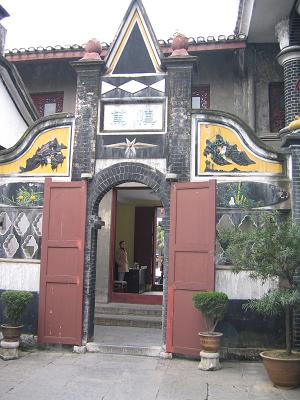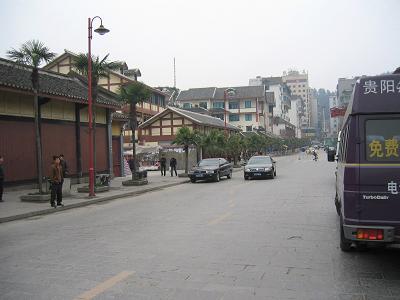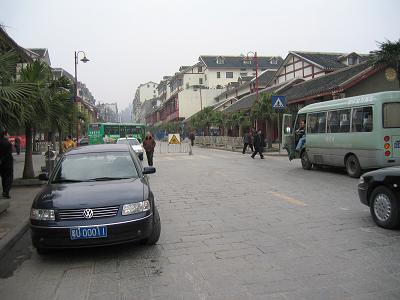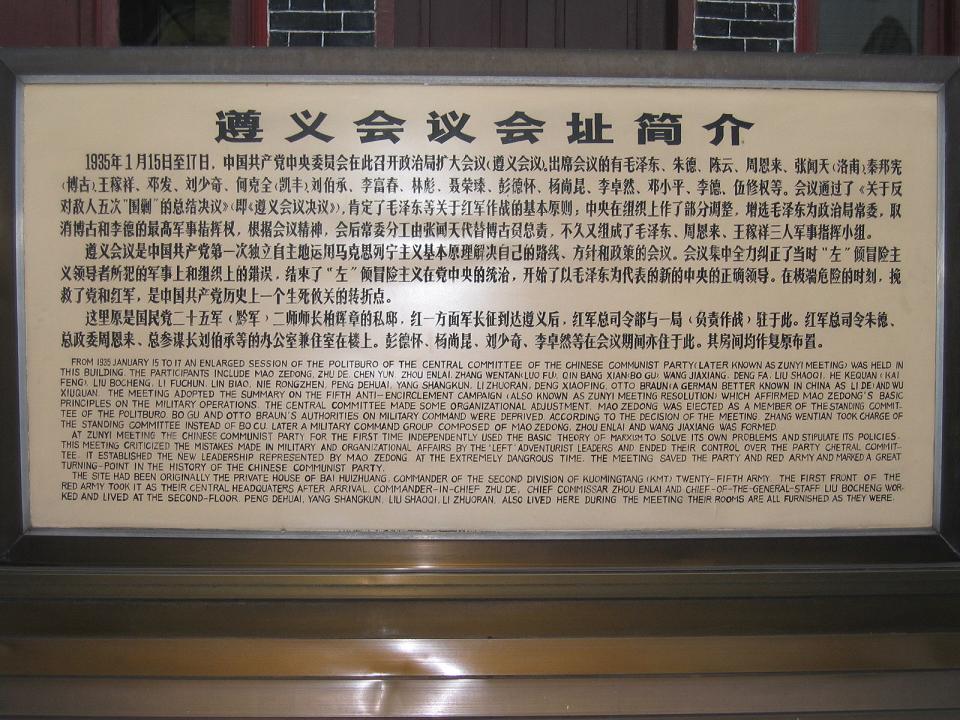|
Zunyi
| Set in the "rice bowl of Guizhou" Zunyi covers 311
square kilometers, including the urban area of 47 square kilometres,
and has a population of 580.000. Zunyi lies on the Xian River, a
tributary of the Wu Jiang. Zunyi is the adminstrative and
economic centre of north Guizhou and is situated on the main railroad
line linking the province with Sichuan to the north.
Originally known as Bozho, the Tang poet, Li Bai called it a savage
and a waste land. Today it is a modern city, nicknamed the "emerald of
north Guizhou" and famous for connection with the Long March.
Within the province Zunyi has the reputation of spawning wiser people
than anywhere else in Guizhou.
During the 1930's when the Red Army arrived in Zunyi it was the second
largest city in the province. After fleeing their base in Jiangxi
province, hotly pursued by the Nationalist forces, the Red Army
fought its way across Hunan and had narrowly escaped defeat by the
time it reached Zunyi at the beginning of 1935.
The historic Zunyi Conference took place in January of that year at
which Mao ZeDong became de facto comander of the Red Army and member
of the Standing Committee of the Politburo. Mao ZeDong's political and
psychological acumen, vividly displayed during the conference, was
pivotal in the fortunes of the Red Army, and the Communist Party.
|
The historic Zunyi Conference took place in January of that year
at which Mao ZeDong became de facto comander of the Red Army and
member of the Standing Committee of the Politburo. Mao ZeDong's
political and psychological acumen, vividly displayed during the
conference, was pivotal in the fortunes of the Red Army, and the
Communist Party.
Mao's guerilla tactics and his conviction that the Nationalists
should not at this time be engaged in decisive battle were
accepted, and his policy of "going north to fight the Japanese"
was adopted. Thus as the Red Army marched northwest to Yunan
(Shaanxi province) that was to become its base , it was in a
spirit of advancing to attack rather than one of retreat.
Traditionally a famous silk spinning and weaving centre, raw silk
is still produced in the area. Along with this some imported silk
from the lower Chang Jiang basin is woven. Zunyi is particularly
well known for ts pure silk duvet covers. Cotton textiles are also
manufactured. Another ongoing traditional industry is the
production of Maotai, and other Chinese wines that are famous
throughout China.
Industrial developments has been encouraged by the recent
hydroelectric power station on the Wu Jiang and other
schemes. The city has a growing industrial base including
chemicals and plastic , food processing, metallurgy, light
engineering, an expanding hi-tech industry, an automobile plant
producing trucks and cars and a ferro-alloy plant. |

Site of the influential Zunyi meeting, now a museum |
Zunyi's large manganese reserves as
well as aluminium, coal, sulphur, mercury, phosphorus, and marble
will further stimulate industry. Large crops of tobacco are grown
in the area and are flue-cured, forming the basic of an important
tobacco industry.
|
 |
 |
| |
|
|
 |
|
|

